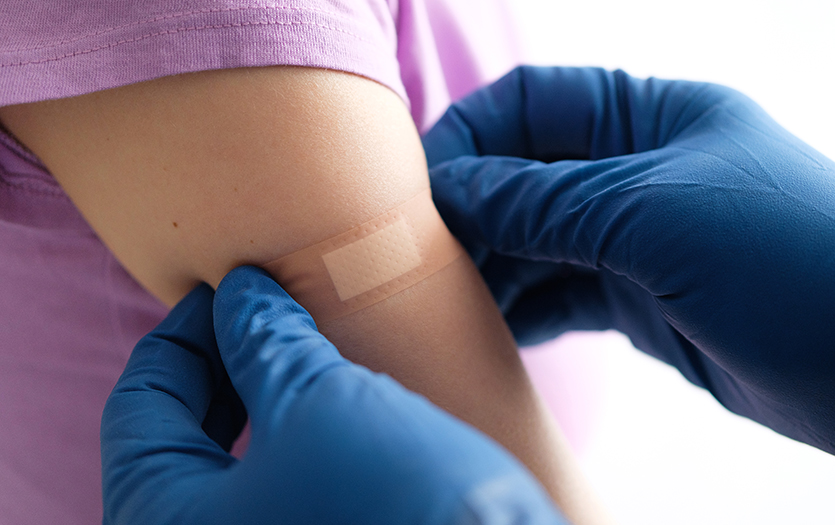
This post was written by Megan Gushrowski, PharmD candidate, and Norm Fenn, PharmD, BCPPS, Parkview Health.
Vaccinations help to protect your child from potentially life-threating diseases and develop their immune system, so that if they are exposed to a dangerous disease, they don’t get sick from it. While the benefits of immunizations are well known, it’s common for children to have some fear around getting the actual injection, and the discomfort that sometimes follows. Below, we have guidance for addressing soreness and symptoms to watch for, in the rare case your child has a reaction to the shot.
Cadence
Most vaccines have multiple doses, which provide longer-lasting protection. It’s important that your child stays up-to-date on all of their vaccines to make sure that they have the highest protection from these illnesses. Your pediatrician or primary care doctor should help you keep track of the immunizations your child needs and when during Well-Child Visits.
Managing side effects
Your child may experience some common, minor side effects within 24 hours after receiving a vaccine. These side effects include:
- Redness, pain or swelling at the site the shot was given
- Mild fever
- Tiredness
- Muscle aches
These are normal signs that your child’s body is building protection against the disease, and they may last for a few days after the vaccine was given. There are a few things that you can do to help relieve your child’s discomfort:
- Apply a cool, wet washcloth or ice pack to the site the shot was given, to help reduce swelling and relieve pain.
- Give your child over-the-counter medications, such as ibuprofen (Advil, Motrin) or acetaminophen (Tylenol), to help with their pain and fever. Do not give your child aspirin. Refer to the directions on the package of the medication or speak to your child’s doctor to see how much medication to administer and how often.
If your child’s symptoms last greater than three days or become severe, contact their doctor for further instruction.
While most side effects of vaccines are minor, sometimes serious reactions can occur. Call 911 immediately if your child has:
- Trouble breathing
- Bluish lips or face
- Swelling of their face
- A rash all over the body
- Is not moving or cannot wake up
If you have any concerns leading up to or following your child’s immunizations, reach out to your physician or care team. They will be happy to address your questions and put both you, and your child’s, minds at ease. If you need help finding a pediatrician or primary care provider, call our Access Center at (877) PPG-TODAY or (877) 774-8632 for assistance.
References
- Common Questions About Vaccines. Centers for Disease Control and Prevention. Updated July 7, 2022.
- Vaccine Side Effects. U.S. Department of Health and Human Services. Updated May 6, 2022.
- Immunization Reactions. Seattle Children’s. Updated December 30, 2022. Accessed April 15, 2023.
- Tips to Reduce Vaccine Side Effects in Kids. Yale New Haven Health
- After the Shots. Immunize.org




